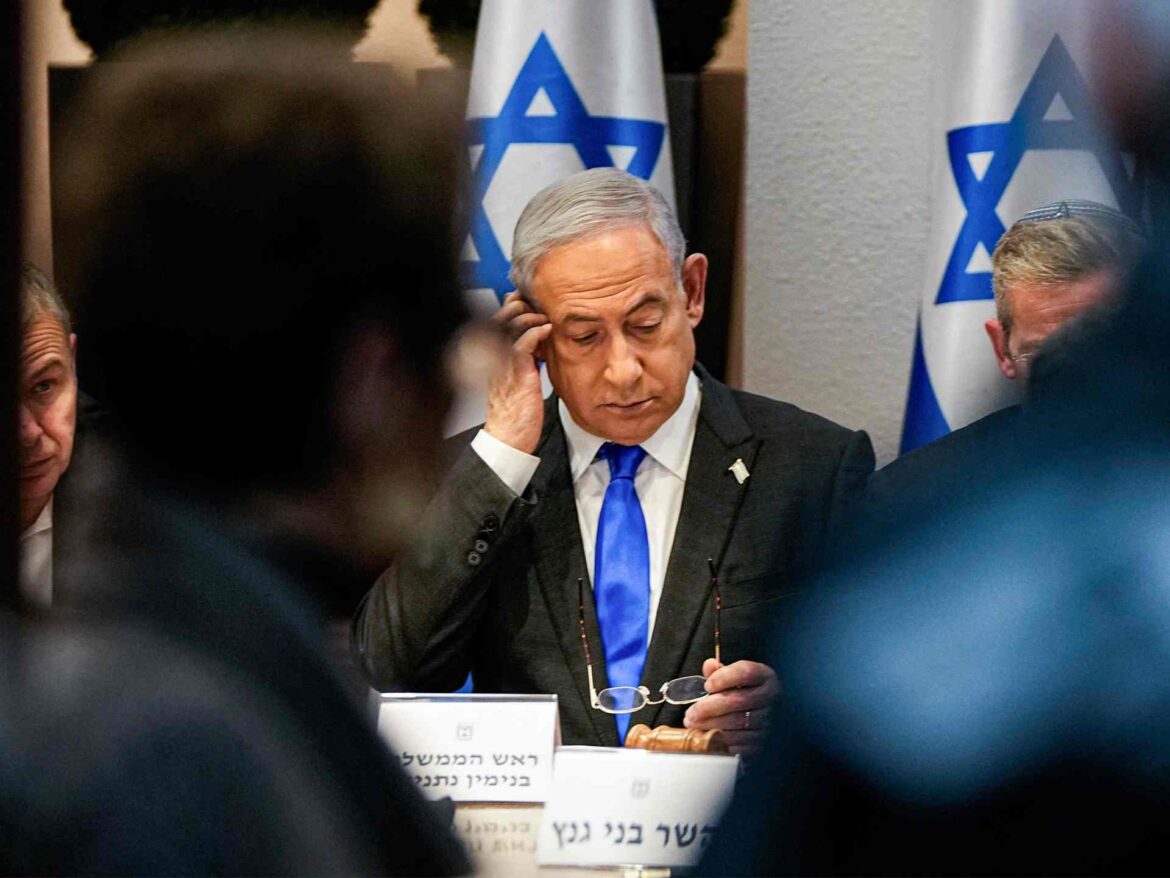12/25/2023–|Last updated: 12/25/202308:04 PM (Mecca time)
The Israeli arena witnessed more disagreement regarding the war on the Gaza Strip. At a time when Prime Minister Benjamin Netanyahu stressed that the war would not stop in Gaza, opposition leader Yair Lapid called for stopping the war and paying “heavy prices” for the return of the prisoners. This coincided with the announcement of the Israeli Finance Minister The war caused a financial deficit about 3 times what it was.
Netanyahu renewed his refusal to stop the war on the Gaza Strip, and said, “The war in Gaza is far from over,” and denied before his party’s representatives what he described as “false media speculation” that his government might call for stopping the fighting against the Strip.
Netanyahu told representatives from his Likud party, “We are not about to stop,” noting that the army will intensify “the fighting in the coming days, and the fighting will take a long time and is not close to the end.”
In reference to his closeness to the soldiers and his emphasis on the presence of support for the continuation of the war, he said in his speech, “I am now returning from Gaza, where I met a reserve division in the field. Everyone asked me only one thing: not to stop and continue until the end.”
Netanyahu, who is under severe criticism and pressure due to the war on Gaza, stressed, “We need patience, cohesion, unity, and adherence to the message.”
He emphasized the content of his speech once again in a speech before the Knesset that Israel would not be able to “liberate all the hostages without military pressure.”
Netanyahu added in his speech, “We would not have succeeded so far in releasing more than 100 hostages without military pressure.”
Tel Aviv Tribune’s correspondent said that the families of the Israeli prisoners interrupted Netanyahu’s speech, demanding the release of their relatives detained by the Islamic Resistance Movement (Hamas).
Relatives of the detainees, who carried photos of their children, chanted “now, now” when Netanyahu said the army needed “more time” to complete the military operation in the Gaza Strip.
Netanyahu’s continuation of the war on the Gaza Strip was supported by the extremist Israeli Minister of National Security, Itamar Ben Gvir, who said that “we will not be able to free the rest of the kidnapped people without military pressure, and we must increase its intensity.”
“Israel is strong”
During a press conference with Netanyahu, Israeli opposition leader Yair Lapid opposed the latter’s position on the continuation of the war, and said, “Israel is strong enough to pay heavy prices in the war it is waging in Gaza,” as he put it.
He added that the opposition supports any deal to return those detained by Hamas in the Gaza Strip.
While Netanyahu stated that his government is making every effort to recover those detained by Hamas, adding that he spoke with the American and French presidents and the British Prime Minister about this matter.
He revealed that he called on the Chinese and Russian presidents to intervene in order to “liberate the detainees in Gaza.”
The Tel Aviv Tribune correspondent said that the Israeli War Council will meet tonight to discuss a new approach to negotiations with Hamas and the Egyptian proposal. Although the proposal was rejected before because it stipulates stopping the war in its third phase.
The correspondent indicated that the Egyptian proposal may be the basis for negotiations that may resume again in the coming days.
Adding that these developments coincide with the increase in demonstrations and their supporters in Tel Aviv and other Israeli cities.
high cost
In the context of the Israeli war on the Gaza Strip and the controversy over its continuation or cessation, Reuters quoted extremist Israeli Finance Minister Bezalel Smotrich as saying that the war on Gaza will likely cost Tel Aviv at least $14 billion next year.
She added that the war has so far led to a financial deficit about three times what it was, and she expected the fighting in the Gaza Strip to continue until next February.
The American Bloomberg website also quoted the Israeli Ministry of Finance as saying that it will need to increase defense spending by at least $8.3 billion next year.



